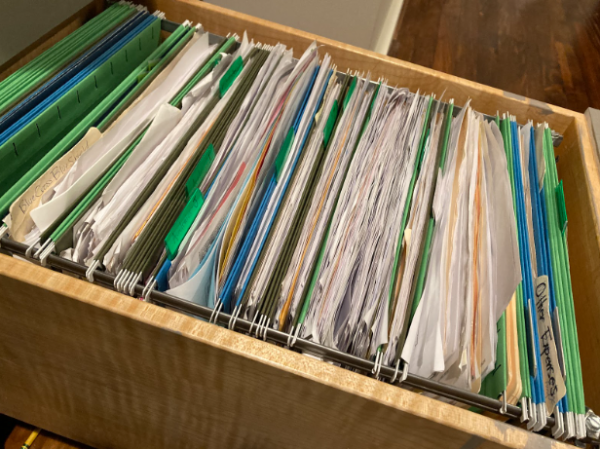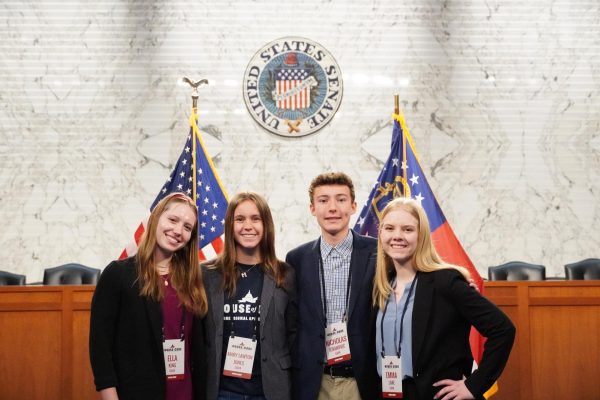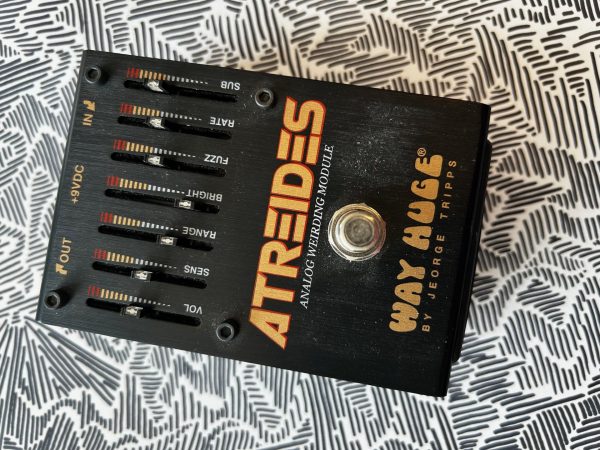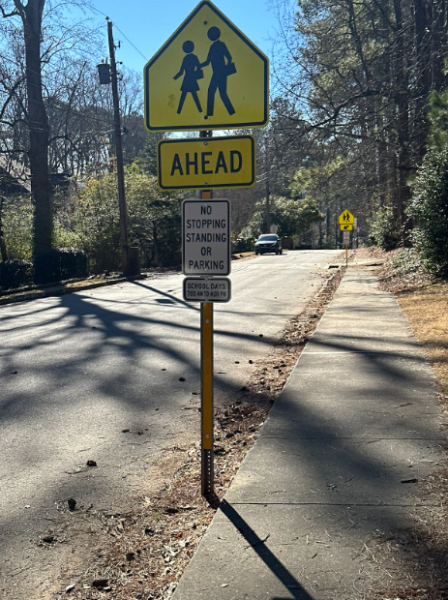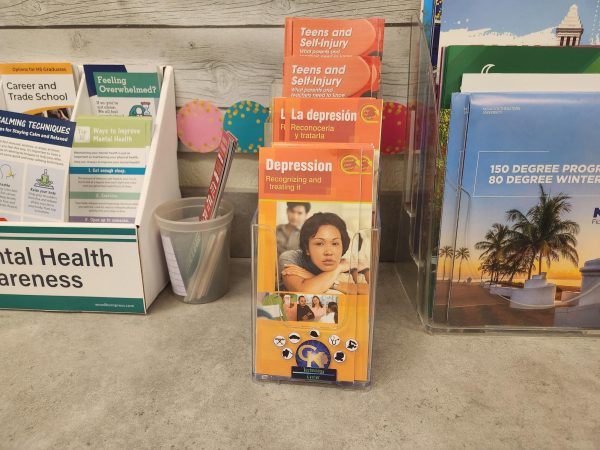The Ins and Outs of Chamblee’s Charter Controversy
Chamblee [Charter?] High School
“Chamblee Charter High School” is a name we all know and love. But thanks to recent events, the second C in CCHS is no longer guaranteed. In the past few months, Chamblee’s governing board has dealt with a dilemma surrounding the school’s unique status.
In the next year, CCHS will either lose its charter entirely or become a fully autonomous charter, meaning the school would employ teachers and make all decisions on its own. This issue has the scale to completely transform Chamblee High School as we know it.
“An autonomous charter would be one that operates much like other charter schools […] which means that we would be in charge of all the money, somewhere around fifteen million dollars, all the roles and all the hiring,” said Dr. Andrew Milne, math teacher and former faculty representative on the Tricameral to the Governing Board. “It would be a big change from right now where DeKalb is running an awful lot of stuff and teachers are DeKalb employees and we don’t see most of the money.”
CCHS currently operates under a conversion charter, but it is still tied to DeKalb County. This gives us the ability to make decisions about our school separate from county policy, including scheduling and the STEAM initiative, but our authority is limited by the fact that DeKalb County is legally our teachers’ and principal’s employer, preventing us from fully controlling policies such as grading. However, this situation has worked for Chamblee in the past couple years.
“We are not able to do all the things we want to do because we are not autonomous, but we are also not autonomous, largely because we’ve gotten the cooperation from DeKalb County that we wanted,” said Billy Joyner, chair of the Governance Committee of the governing board.
A startup charter school is one that began as an independent charter school. Chamblee, on the other hand, is a conversion charter, meaning we transitioned from a normal public high school, and the state wants us to become more like the startup charters. The state of Georgia has been trying to eliminate conversion charters for years, and Chamblee is one of the last few remaining.
“My understanding from what we’ve heard from the state as well as the county as well as observers of this process around the state is that conversion charters, of which we are, that are in this middle ground, everyone’s trying to get rid of them and with good reason,” said Joyner. “We are not able to fully achieve all of the benefits of a charter school on the one hand, while on the other hand we do create this extra layer of governance that everybody’s had to deal with. We’re not getting the benefits and we’re taking on a lot of liabilities and it doesn’t make a lot of sense to keep this status quo. Either we need to do it or we don’t.”
This year when Chamblee submitted a request for an extension on the regular charter renewal process, DeKalb County denied their appeal, telling the governing board that they would not give any extensions until CCHS made it clear that the charter would become fully independent from DeKalb County.
“We are on a five year charter term, so we were coming up to the point where we are going to need to start the renewal process on the next charter, even though we got two years left,” said Milne. “We have to start it a long way in advance because that’s just the rules. Instead of starting that, the governing board of the charter sent a letter asking for an extension on the grounds that we had gone through the stuff with the principal, and that we were behind because we spent two years dealing with that, which I thought was a reasonable request. They got a reply that said they weren’t going to give any extensions or renew our charter unless it is clear that we are becoming an autonomous charter.”
The renewal process involves many steps.
“It involves sending [DeKalb] a letter in January and writing a renewal petition, which is a 70-100 page book that you send to the state and to DeKalb,” said Milne. “It also involves having a parent vote and having a faculty vote and [the charter] has to pass both votes, and all of that has to be done and turned in by early August of next year.”
If this vote is passed, the school would maintain its charter and become fully autonomous. This would give the school complete authority over its entire budget, instead of just $171,467 awarded in the 2019-2020 year to the Governing Board as a discretionary fund. In contrast, the entire budget would likely include the $10,677,902 that DeKalb County designated for Chamblee this year, as well as portions of other funds, including transportation and food. These funds are not separated out by school, which makes it difficult to know just how much CCHS would receive were it to become fully autonomous.
In addition to budgeting, full autonomy comes with many other unknowns, including teacher salaries and pensions.
“There is probably some concern with the teachers about a transition if we do renew our charter and go to full autonomy because […] DeKalb County school system would no longer be their employer,” said Joyner. “Chamblee Charter High School would become their employer, and therefore, Chamblee Charter High School would become in charge of their salary and their benefits and their insurance. And in that transition, I’m sure that the teachers would be concerned about possibly getting less salary or worse benefits, and they don’t know what happens to their pensions.”
Many of the teachers therefore feel that they simply don’t have enough information to decide to keep the charter.
“We need to know what it looks like from the teacher’s point of view. In some charter schools, teachers are paid a lot less,” said Milne. “Another issue is everyone might technically lose their job and have to be rehired, so we’d have to know what that looks like. So, for teachers to vote for it would require an awful lot of details that don’t currently exist. That’s the biggest issue. There’s an awful lot of unknowns. And it’s hard to imagine us getting answers to these questions.”
Biology teacher Deann Peterson explains that many of these teacher benefits are associated with DeKalb.
“To be a fully autonomous school, by definition of the state, the teachers are paid out of funding from the school, not through DeKalb County,” said Peterson. “This means that you also are not part of the teacher’s retirement system. You also are not part of the state health benefit system. Both of those are significant. You can get health insurance, hopefully it wouldn’t go up in cost, but not being part of the teacher’s retirement system is a really big hit.”
However, Joyner took the time to stress that the board will ensure that the teachers are considered.
“I cannot imagine the board creating a situation where we do not make sure that our teachers are taken care of,” said Joyner. “Whatever we do, we will make sure that they are taken care of, and I wouldn’t expect them to approve any charter that does any less than that.”
Peterson also voiced a concern that the administration of CCHS would have to be restructured if we were to become fully autonomous.
“If we were fully autonomous and the principal had to take care of, not just what she normally takes care of right now, but also transportation and food service and maintenance for the building and HR for all of the faculty and seventeen hundred students and a fifteen million dollar budget, that’s not one person,” said Peterson. “There’s not one person that can do all of that. That would be a tough sell, I think, to most people, to sign up to do something like that. It’s just setting yourself up for failure. That’s way more than one person can do. That’s way more than one person with five or six subordinates can handle. It’s too much.”
Another unknown is the potential effect on students, as a fully autonomous charter could convince DeKalb to move the Magnet program to a school under its jurisdiction.
“Magnet students technically right now are not at the charter school,” said Milne. “They’re at Chamblee but not at the charter school because charters cannot have admissions requirements, so you cannot say you need a certain grade point average to go to a charter school. What you can do is let people in and if they don’t have a certain GPA, you can throw them out, but you can’t have a standard to get in. That’s been the problem for the last six or seven years. Last time we renewed the charter we were looking at taking full control and being an autonomous charter. The issue of the magnet program was what stopped us then.”
Though a charter and non-Magnet school is a possible option, decisions on the charter and Magnet program are separate. Chamblee could become a charter and Magnet school, a non-charter and Magnet school, a charter and non-Magnet school or a non-charter and non-Magnet school, though some of these options are a lot more likely than others. DeKalb could also make the decision to move the Magnet program due to redistricting later regardless of the decision, so decisions on the charter should not necessarily be based on the Magnet program.
In addition to academics, athletics would also be influenced by a transition to full autonomy.
“We are [in the 5A division for athletics] right now and next year we are set to be 6A,” said English teacher and softball coach Samantha Turk. “For us that means that we play more challenging teams, not just for the softball program, but for everybody. We will go against other 6A schools, which makes it more challenging, more fun for us and more interactive, but, if we do go with the charter route, then our numbers are [technically] going to cut into almost a fourth. So we would probably drop down to 2A or 3A.”
A placement into a 2A or 3A division will significantly decrease the opportunities available in the area.
“There are not many 2A or 3A schools anywhere around us because we’re a metro school,” said Turk. “We would be traveling incredibly far, with long bus drives for everybody to play against these other teams and the competition wouldn’t be nearly as fun and we wouldn’t be able to grow. That’s a big part of our school culture.”
Full autonomy is not the only option. Chamblee could also elect to surrender its charter instead of becoming fully autonomous, which would have a different set of effects on the school.
“I think all of the things that we vote on in the [governing board] budget, which is a relatively complex set of initiatives would either have to be reshuffled or lost [if we lost the charter], including the STEAM initiative that we’ve begun,” said Joyner. “That would affect some freshmen that are involved in that initiative right now.”
Not all changes to the school will be obvious to students.
“There are a couple of things that students wouldn’t notice but teachers probably would in the way that we’ve restructured how teaching goes. One of the main issues of contention between us and DeKalb County has always been how the teachers are managed,” said Joyner. “We’ve gotten some concessions from them in that regard because of the charter school. If the charter school is gone, the teachers would revert to 100% DeKalb County policies, so they would probably see some differences as well.”
There is also a great deal of uncertainty about what policies might be affected. Chamblee would look much like any other DeKalb public school, and as Chamblee is one of the only high schools in DeKalb to have a seven period day, Joyner explains that we could revert to block scheduling.
“[Scheduling] as well as pretty much everything else depends on DeKalb County. I would assume that you would go back to block scheduling and every policy countywide that Chamblee doesn’t have to deal with now, would now have to be dealt with,” said Joyner. “Does the county phase [these policies] in, do they grandfather people in, do they say ‘we’re going to continue the way it is and see how it works’? I don’t know. I’ve been watching DeKalb County Schools for a long time and I cannot give you a good prediction for what they’re going to do on any given day.”
Due to all of these unknowns, the urgency of the charter’s current timeline has created a lot of anxiety.
“We would need to have answers to [all of our] questions in two or three months,” said Milne. “[The charter petition] is due in early August, so we have to vote in May, which means it needs to be done in April, which means we would need answers to questions pretty much right now. That’s what the big fuss is. The fuss is they are pushing for us to make a theoretical change with very little time or information on what that change would involve.”
More information on the charter can be found here, including a comprehensive chart comparing the advantages and disadvantages of a fully autonomous and non-charter Chamblee.
All in all, some teachers like U.S. history teacher Jennifer Tinnell are most concerned with the fate of the students.
“My number one priority is, I shut the door and teach the kids in my room,” said Tinnell. “Whether we’re a charter or a public school like everybody else, my priority with the students that I teach is number one, whether we’re a charter or not.”
Your donation will support the student journalists of Chamblee High School Blue & Gold. Your contribution will allow us to print editions of our work and cover our annual website hosting costs. Currently, we are working to fund a Halloween satire edition.
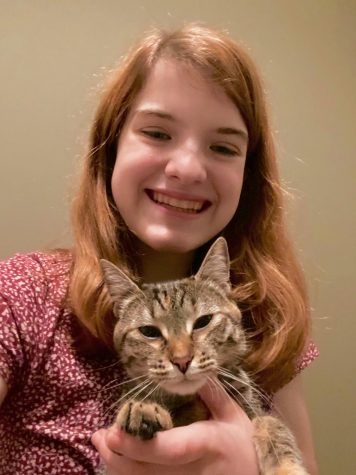
Catherine Cossaboom is a senior and editor of the Blue & Gold. In her free time, you can find her solving way too many math problems, going on wandering walks to make friends with the deer in her neighborhood, and training her kittens to compete at the next Kentucky Derby. In five years, she hopes to be traveling across the country, running math circles, writing columns, and turning math into a performance art to empower girls to take on the world's problems. This is her third year on the staff.

Vivien Orellana is a senior on the Blue & Gold. When she's not working, she is often napping, listening to music, or wasting time on the Internet. In five years, she hopes to have graduated college in minimal amounts of debt. This is her second year on the staff.

![Chamblee [Charter?] High School](https://chambleeblueandgold.com/wp-content/uploads/2019/12/BFDDB180-2D08-4427-90A8-26DA2657969F-900x600.jpg)
